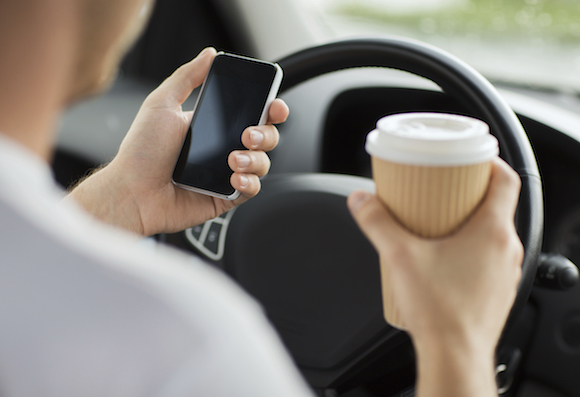Although virtually every state has enacted some form of distracted driving law aimed at discouraging certain uses of cell phones while driving, distracted drivers who are talking and texting on mobile phones continue to claim lives. States have taken vastly divergent approaches to dealing with distractions involving cell phones. Many states have taken a hardline by making it a “primary offense” to use or text on a cell phone when driving, Florida has been at the other extreme. In our state, talking on a cell phone is perfectly legal. Although a motorist can be fined for texting and driving, Florida’s cell phone law classifies a violation as a “secondary offense,” so a violator can only be cited and fined if the officer stops the driver based on an independent offense like speeding.
How serious is the cell phone distraction problem?
The liberal approach to cell phone driving restrictions in Florida creates an impression that no serious problem exists, but the evidence suggests that this assumption is mistaken. Drivers attempting to multi-task are responsible for eight deaths and 1,161 injuries throughout the U.S. on an average day according to the Centers for Disease Control and Prevention (CDC). Despite these disturbing numbers, nearly seventy percent (69%) of drivers age 18-64 admitted to talking on their cell phone during a 30 day period prior to a study conducted by the CDC. Further, 31 percent of motorists admitted to engaging in text messaging behavior while driving according to the agency.

The risk of text messaging and driving is evidenced by the fact that motorists avert their eyes from the road for an average of five seconds when texting according to the Virginia Tech Transportation Institute (VTTI). At 55 miles per hour, a car will travel over the length of a football field while the driver’s eyes are not focused on the road.
Why are lawmakers having a difficult time discouraging this unsafe practice of distracted drivers?
Florida law provides an example of fairly ineffective legislation aimed at preventing cell phone use behind the wheel. While other states have loopholes in their distracted driver laws that create problems, Florida’s distracted driving law imposes a minor restriction that is swallowed up by a sea of loopholes. First, the law only applies to text messaging, so motorists with iPhones, Android phones, and Windows phones can engage in a wide range of distracting activities without running afoul of the law.
Florida’s cell phone law provides as follows:
“A person may not operate a motor vehicle while manually typing or entering multiple letters, numbers, symbols, or other characters into a wireless communications device or while sending or reading data in such a device for the purpose of nonvoice interpersonal communication, including, but not limited to, communication methods known as texting, e-mailing, and instant messaging.”
Examples of highly distracting cell phone activities that arguably are permissible under this statute include the following:
- Talking on a cell phone
- Dialing a telephone number
- Playing video games
- Reviewing maps & GPS information
- Reading an electronic book
- Watching a movie
- Selecting songs from a playlist
- Posting pictures on social media sites
- Viewing social media pages

While these forms of distracted driving multi-tasking behind the wheel are extremely dangerous, they remain legal under Florida’s distracted driving law. Some of these activities might even be considered more dangerous than texting and driving.
A second major flaw in Florida’s distracted driving law involves designating a violation as a secondary offense. While a police officer can pull over a driver who appears to be texting in a primary offense state, a motorist can engage in this activity openly and obviously without fear of being stopped and ticketed. The officer cannot pull over the texting driver unless the officer has a reasonable belief based on articulable facts that the driver is engaged in some other form of illegal activity. The secondary nature of the offense essentially means that a motorist usually will not face the possibility of a distracted driving fine unless the driver is observed committing two violations by the officer. Since cell phone use is hard to detect from another vehicle, the risk of citations is minimal.
The third major flaw associated with Florida’s anti-texting law is that the penalties are insufficient to discourage this unsafe practice. The total consequence for a texting and driving ticket is a $30 fine for a first offense. While other penalties might apply if the distracted driver causes an accident, the consequences associated with a preemptive ticket are feckless.
The key point to take away from this blog post is that Florida law continues to lag behind other states in terms of preventing cell phone-related collisions and other distracted drivers crashes. If you or a loved one has been injured in a car accident, call us today at Luhrsen Goldberg for your free no obligation initial consultation at 941-212.2600.